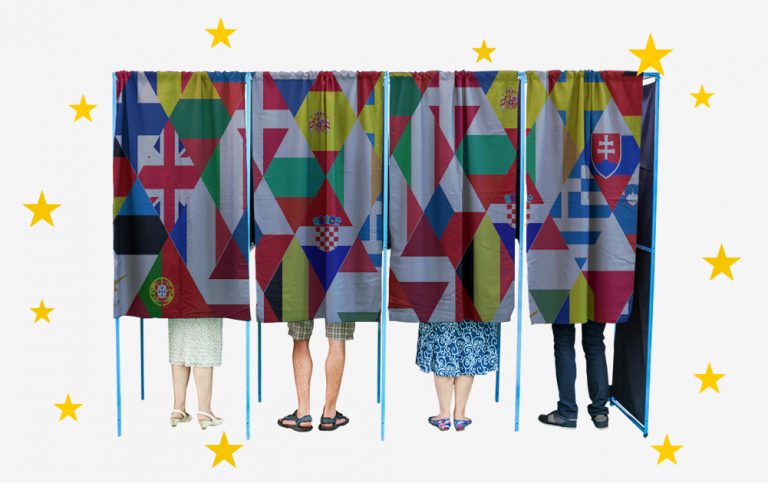Transnationale Listen könnten den Charakter der Europawahl entscheidend verbessern: als europäische Wählen, die ihren Namen verdienen, statt als Summe aus 28 nationalen Wahlen. Dieser offene Brief richtet sich an die Europaabgeordneten, die am Mittwoch 7. Februar abstimmen, ob transnationale Listen als Meilenstein für eine stärkere Europäische Demokratie kommen. Meinen herzlichen Dank für große Unterstützung bei der Sammlung der vielen Unterschriften an Prof. Dr. Hauke Brunkhorst, Daphne Büllesbach und Prof. Dr. Ulrike Liebert!
Der Brief als PDF
Energising European Democracy: Time for Transnational Lists
Britain’s decision to leave the European Union is both a drastic wake-up call and a unique opportunity to reinvigorate democracy in Europe.
If Britain leaves, they will be giving up 73 seats in the European Parliament, thus providing us with a unique, historical opportunity to take a big leap forward by building a truly European democracy that unites people across borders.
Our proposal to energise European democracy is to give some of the seats left over from Britain’s departure to set up, for the first time ever, “transnational lists”. Transnational lists would push all European political forces to present comprehensive programmes that take into account the needs of all European citizens instead of running with contradictory proposals that are split across different countries or regions.
This would revive democratic debates inside the political groupings and help to build a truly European public space. At last, people in Europe could vote for whoever they thought would best represent them, rather than having to choose between existing national or regional parties. Citizens who have more in common with their peers across borders than their fellow nationals would finally be more connected and better represented.
Even starting with a limited number of seats, this has the potential to change politics dramatically, until eventually all citizens across Europe would have the possibility to hold all elected European politicians to account for the decisions they take in Brussels.
This is not a new proposal, and in fact, the European Parliament already voted in favour of this idea back in 2015, when reforming the European electoral law. Since then, the pulse of Europe is beating stronger and the number of supporting governments in the Council has been growing.
This Wednesday 7th February the European Parliament in Strasbourg will once again vote on transnational lists, with the difference that now there is a tangible opportunity to actually implement them in practice. This is why it is more important than ever that MEPs deliver something transformative, something that lets citizens know that the European Parliament is listening, and something that harnesses the power of the people by giving them the ability to truly speak up and to shape a pan-European debate.
Signed by:
Prof. Dr. Alberto Alemanno, Jean Monnet Professor of European Union Law and Regulation, Ecole des Hautes Etudes Commerciales (HEC) ParisProf. Dr. Péter Balázs, former EU Commissioner and Professor at the Central European University
Mercedes Bresso, MEP from Progressive Alliance of Socialists and Democrats Group, Italy
Prof. Dr. Gerhard Bosch, Institut Arbeit und Qualifikation, Universität Duisburg-Essen
Prof. Dr. Hauke Brunkhorst, Professor of Sociology and Head of the Institute of Sociology at the University of Flensburg
Daphne Büllesbach, Executive Director European Alternatives
Udo Bullman, MEP, Vice-President of the S&D, Germany
Reinhard Bütikofer, co-chair of the European Green Party, Greens/EFA MEP
Jean-Marie Cavada, ALDE Group MEP, France
Prof. Dr. Adriana Ciancio, Professor of Constitutional Law at the Department of Law of University of Catania-Italy
Daniel Cohn-Bendit, ex-MEP
Prof. Dr. Stefan Collignon, Professor of political economy at Sant’Anna School of Advanced Studies, Pisa
Prof. Dr. Ben Crum, Professor in Political Science, Free University of Amsterdam
Prof. Dr. Sebastian Dullien, Professor für Volkswirtschaftslehre, Hochschule für Technik und Wirtschaft Berlin
Pascal Durand, Greens/EFA Group MEP, France
Prof. Dr. Henrik Enderlein, Director of the Jacques Delors Institute in Berlin and Professor of Political Economy at the Hertie School of Governance in Berlin
Monica Frassoni, co-chair of the European Green Party
Joachim Fritz-Vannahme, Bertelsmann Stiftung
André Gattolin, French Senator, En Marche
Sven Giegold, Greens/EFA MEP, Germany
Matthias Greffrath, Writer and Journalist
Prof. Dr. Ulrike Guerot, Head of the Department for European Policy and the Study of Democracy at Danube University Krems & founder of the European Democracy Lab
Prof. Dr. Gustav Horn, Economist, Universität Duisburg-Essen
Srecko Horvat, Philosopher, co-founder DiEM25
Benedek Jávor, Greens/EFA Group MEP, Hungary
Prof. Dr. Gertrud Koch, Freie Universität Berlin
Ska Keller, co-President of the Greens/EFA Group in the European Parliament
Prof. Dr. Regina Kreide, Professor of Political Theory and History of Ideas, Justus Liebig University Giessen
Philippe Lamberts, co-President of the Greens/EFA Group in the European Parliament
Jo Leinen, S&D Group MEP, Germany, Co-Rapporteur on the reform of the European electoral law, Honorary President of the European Movement International (EMI)
Prof. Dr. Ulrike Liebert, Professor for Political Science, European Integration
Javi López, S&D Group MEP, Spain
Prof. Dr. Aleksandra Maatsch, Catholic University of Lille
Lorenzo Marsili, Founding member of DiEM25 and Co-founder of European Alternatives
Prof. Dr. Andreas Maurer, Jean-Monnet-Chair for Political Science and European Integration, University of Innsbruck
Dr. Robert Menasse, Author
Niccolo Milanese, Co-founder of European Alternatives
Javier Nart, ALDE Group MEP, Spain
Prof. Dr. Kalypso Nicolaidis, Professor of International Relations and Director of the Center for International Studies at Oxford University
Prof. Dr. Claus Offe, former Professor of Political Sociology at the Hertie School of Governance, Universities of Bielefeld, Bremen and Humboldt-Universität in Berlin
Dimitrios Papadimoulis, GUE/NGL MEP and Vice President of the European Parliament
Paola Pietandrea, Linguist, member of DiEM25’s Coordinating Collective
Julia Reda, Pirate Party MEP, Germany
Dr. René Repasi, scientific coordinator of the European Research Centre for Economic and Financial Governance
Dominique Riquet, ALDE Group MEP, France
Prof. Dr. Philippe Schmitter, European University Institute
Prof. Dr. Gesine Schwan, Humboldt-Viadrina Governance Platform
Josep-Maria Terricabras, Greens/EFA Group MEP, Spain
Shahin Vallée, Economist at LSE European Institute
Yanis Varoufakis, Economist, co-founder DiEM25
Guy Verhofstadt, President of the ALDE Group in the European Parliament
Agnieszka Wiśniewska, Journalist, member of DiEM25’s Coordinating Collective
Prof. Dr. Michael Zürn, Hertie School of Governance, Political scientist

